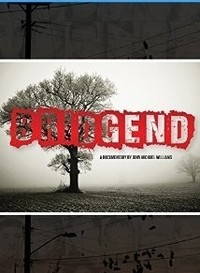Bridgend explores one community’s experience with what appears to be an ongoing tragic series of events. Incredibly tight-knit it has seen a large amount of media attention for the large percentage of individuals who took their own lives. While John Michael Williams explores some of the explanations for these events ultimately it is impossible to find any reasoning and sense for what occurred. For those individuals left the world without leaving a single note. Hence the only things that can be explored are the environment they grew up in, the community’s prospects for the future, and the overall mood of the community.
Plenty of personal interviews are given with those who lost loved ones. These are heart-breaking to watch, in part because of the stoicism of many of the interviewees. As they are asked difficult questions they reflect upon them quietly. Intermingled between these personal interviews are glimpses of the media attention these events. Much of the media coverage tends to simplify what occurred to those individuals who took their lives, often reducing conversations with their loved ones to mere sound bites. Eventually the media’s attention to said events is examined with those suffering calling for the media coverage to end its sensationalism.
The most intriguing insights come from those further away from the victims. Young girls from the town offer a blunt yet interesting take on the culture that might have led to such a hopeless environment (though they are also quick to state it is a problem with the community, not with Wales or the larger area). Individuals associated with the community offer an analytical take on what occurred: in particular the coroner whose words are well-chosen, thoughtful, and feature a broader take on the community at large. One of the best moments of the documentary happens at the end with the tattoo artists. By being relatively close to one of the victims, yet far away enough to offer a mostly unbiased opinion, they discuss what it is like being a parent in the community. Even as one self describes himself as a ‘cool dad’ he reflects on the media’s role, whether it is better to have coverage or no coverage. The end of his talk, as he mentions his own teenage daughter and his questions about how he should talk to her about such things, makes the end of the film poignant.
Open-ended in nature, “Bridgend” explores this world, of those who lost their loved ones and will never receive a satisfying answer. The gray tones of the movie reflect the ambiguity that exists when something as terrible as what happened in Bridgend occurs. For the movie answers no questions but rather tries to make sense of what happened to tens of people in such a small community and it does so wonderfully.
http://www.imdb.com/title/tt1732582/combined
Posted by Beach Sloth – http://beachsloth.blogspot.com/

